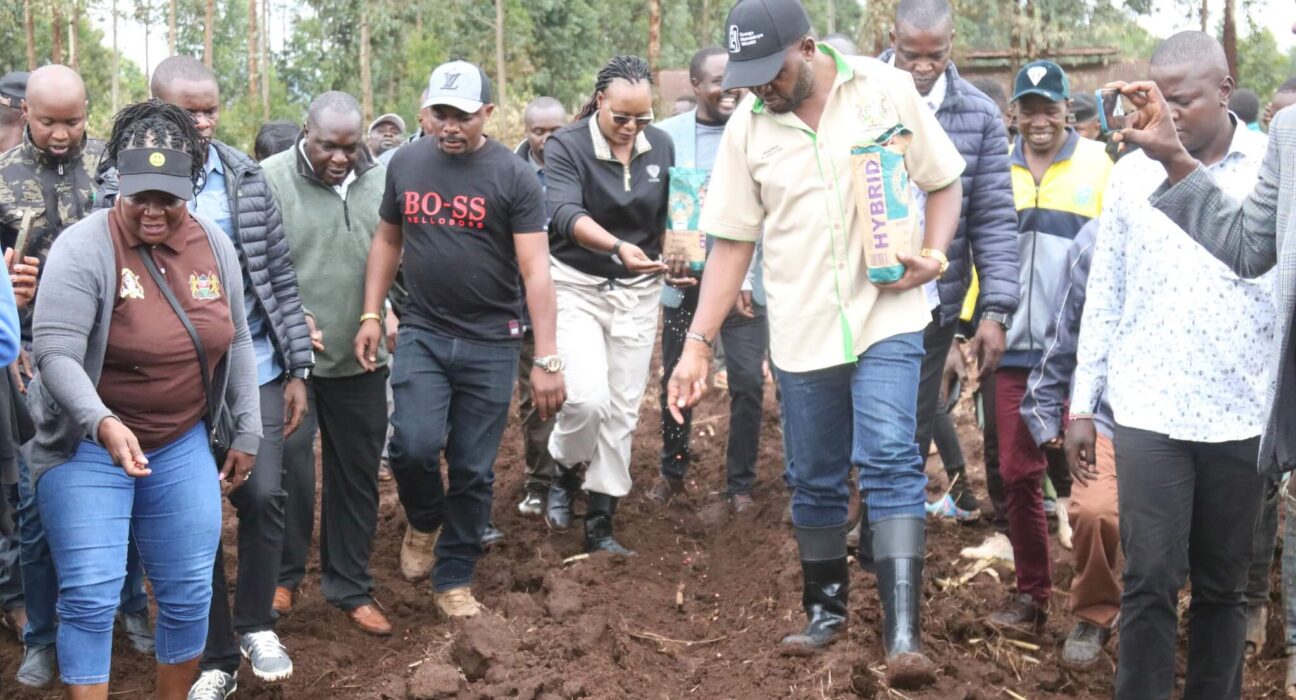Trans-Nzoia County, nestled in Kenya’s former Rift Valley Province, is a region rich in agricultural heritage and cultural diversity. Established in 2010, the county has its administrative headquarters in Kitale, a bustling town that serves as the epicenter of economic and social activities. Bordered by Uganda to the west, Bungoma and Kakamega Counties to the south, West Pokot County to the east, and Elgeyo Marakwet and Uasin Gishu Counties to the southeast, Trans-Nzoia’s strategic location has fostered a unique blend of cultures and economic opportunities.
Administrative Structure of Trans-Nzoia County
The governance framework of Trans-Nzoia County is meticulously organized to ensure efficient service delivery and representation. The county is divided into five sub-counties, each further segmented into electoral wards. This structure facilitates localized governance, allowing residents to have direct representation in county affairs.
Sub-Counties and Their Respective Wards
- Kwanza Sub-County
- Kapomboi Ward: Known for its vibrant agricultural activities, particularly maize and dairy farming.
- Kwanza Ward: Hosts the Kwanza town, a pivotal commercial hub in the sub-county.
- Keiyo Ward: Features a mix of farming and small-scale trading activities.
- Bidii Ward: Renowned for its commitment to educational development and community initiatives.
- Cherangany Sub-County
- Sinyerere Ward: Characterized by its lush landscapes and tea plantations.
- Makutano Ward: A melting pot of cultures, reflecting the county’s diversity.
- Kaplamai Ward: Known for its progressive farming techniques and cooperative societies.
- Motosiet Ward: Features scenic views and is a growing area for horticulture.
- Cherangany/Suwerwa Ward: Rich in cultural heritage and traditional practices.
- Chepsiro/Kiptoror Ward: Home to various community-based organizations promoting social welfare.
- Sitatunga Ward: Noted for its environmental conservation efforts and wildlife.
- Kiminini Sub-County
- Kiminini Ward: A rapidly growing urban center with increasing commercial activities.
- Waitaluk Ward: Known for its educational institutions and vibrant youth programs.
- Sirende Ward: Features a mix of agriculture and artisanal mining activities.
- Hospital Ward: Hosts major healthcare facilities serving the county.
- Sikhendu Ward: Renowned for its cultural festivals and community gatherings.
- Nabiswa Ward: A hub for small-scale industries and cottage businesses.
- Saboti Sub-County
- Kinyoro Ward: Known for its fertile lands supporting diverse crops.
- Matisi Ward: A densely populated area with bustling markets.
- Tuwani Ward: Features emerging real estate developments and housing projects.
- Saboti Ward: Rich in history and home to several cultural sites.
- Machewa Ward: Known for its community-driven development projects.
- Endebess Sub-County
- Chepchoina Ward: Borders Uganda and is known for cross-border trade.
- Endebess Ward: Hosts the Endebess town, a key administrative center.
- Matumbei Ward: Features expansive agricultural lands and forest reserves.
Economic Landscape of Trans-Nzoia County
Agriculture stands as the backbone of Trans-Nzoia’s economy, earning it the title “Kenya’s grain basket.” The county’s fertile soils and favorable climate conditions make it ideal for cultivating various crops.
- Maize Farming: Trans-Nzoia is one of Kenya’s leading maize-producing regions, contributing significantly to the national grain reserves.
- Dairy Farming: The county boasts a robust dairy industry, with numerous small and large-scale farmers supplying milk to local and national markets.
- Tea and Coffee: In areas like Cherangany, tea plantations thrive, while coffee farming is practiced in select zones, adding to the county’s agricultural diversity.
- Horticulture: The cultivation of vegetables and fruits has seen an upsurge, with produce reaching markets across the country.
Infrastructure and Development
Trans-Nzoia has witnessed substantial infrastructural developments aimed at boosting its economic potential and improving residents’ quality of life.
- Road Networks: Enhanced road infrastructure has improved connectivity within the county and to neighboring regions, facilitating trade and movement.
- Education: The county prides itself on numerous educational institutions, from primary schools to tertiary colleges, fostering a culture of learning.
- Healthcare: Healthcare facilities have been upgraded, with the Hospital Ward in Kiminini Sub-County being a focal point for medical services.
Cultural and Tourist Attractions
The rich cultural tapestry of Trans-Nzoia is complemented by various tourist attractions:
- Mount Elgon National Park: A portion of this park lies within the county, offering trekking, wildlife viewing, and caving experiences.
- Cultural Festivals: Annual events showcase the traditions, music, and dances of the diverse communities residing in the county.
Governance and Political Representation
Each ward in Trans-Nzoia elects a Member of the County Assembly (MCA) who represents the residents at the county level. The county also sends Members of Parliament (MPs) to the National Assembly from its five constituencies:
- Kwanza Constituency
- Cherangany Constituency
- Kiminini Constituency
- Saboti Constituency
- Endebess Constituency
The Governor oversees the county’s executive functions, implementing policies and spearheading development projects. The county also has a Senator and a Woman Representative who advocate for its interests at the national level.
Challenges Facing Trans-Nzoia County
Despite its economic potential, Trans-Nzoia County faces several challenges that hinder its full growth and development:
1. Agricultural Challenges
- Post-Harvest Losses: Farmers often experience losses due to inadequate storage facilities and poor market access.
- High Cost of Farm Inputs: Fertilizers, seeds, and pesticides are expensive, affecting productivity.
- Unstable Maize Prices: Farmers struggle with fluctuating maize prices, leading to financial uncertainty.
2. Infrastructure and Road Network
- Some interior parts of the county still lack well-maintained roads, making transportation of goods and services difficult, especially during the rainy season.
3. Unemployment and Youth Empowerment
- A significant portion of the youth in the county lacks employment opportunities, leading to increased rural-urban migration.
4. Land Disputes
- Due to historical land issues, some parts of the county still experience land ownership disputes, affecting development and settlement.
5. Healthcare Gaps
- Although healthcare services have improved, some areas still lack adequate medical facilities, forcing residents to travel long distances for specialized treatment.
Future Prospects and Development Plans
The county government and national government have initiated various projects to address these challenges and improve livelihoods.
1. Agricultural Reforms
- Establishment of maize drying and storage facilities to reduce post-harvest losses.
- Subsidized farm inputs to support small-scale farmers.
- Promotion of alternative crops such as horticultural produce to reduce overreliance on maize.
2. Infrastructure Expansion
- Roads in rural areas are undergoing upgrades to enhance connectivity.
- Electricity expansion projects are bringing power to more homes and businesses.
3. Education and Youth Empowerment
- Increased funding for Technical and Vocational Education and Training (TVET) institutions.
- Entrepreneurship programs for youth to encourage self-employment and innovation.
4. Healthcare Improvements
- More dispensaries and health centers are being constructed to bring services closer to the people.
- Plans to equip county hospitals with specialized medical equipment to reduce patient referrals to other counties.
Trans-Nzoia County remains one of Kenya’s most promising regions, thanks to its agricultural strength and diverse culture. While challenges persist, ongoing development projects and reforms are positioning the county for a brighter future. With continued investment in agriculture, infrastructure, and education, Trans-Nzoia has the potential to become a leading economic hub in Kenya.





